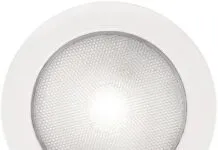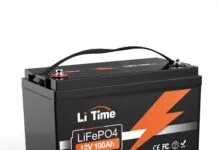There’s a big market these days for “exam” gloves—the kind that used to be reserved for doctors and dentists, but are now used by everyone in the medical world, including EMTs and firefighters. The popularity of these gloves has grown in direct proportion to the spread of AIDS, hepatitis, and other blood-borne pathogens.

Maybe because they became so evident in so many places, these gloves jumped barriers and landed in other trades, too. Painters use them to keep clean. Mechanics use them to keep clean, to block the absorption of engine fluids, and to stave off barked knuckles.
We use such gloves around here, too—no, not usually for typing, but we do occasionally leave the keyboard. In fact, the bottom-painting project each spring burns through gloves at an alarming rate—maybe 400 of them in the process of sanding, solvent-wiping, stirring, and painting the scores of panels we handle. We use the gloves in experiments with fuel and oil, with some cleaners, and always with epoxies, resins, fiberglass, and adhesives.
They’re available in various rubber types—latex, neoprene, or nitrile, or in vinyl—with or without powder. People with an allergic sensitivity to latex will want to go with the vinyl. All have somewhat different resistances to petroleum and chemical products.
Is there much of a difference between these gloves, and if there’s a difference, does it really matter, given the fact that they’re all completely disposable?
There’s definitely a difference. We had been using any old rubber glove that came to hand (it’s good when you can train ’em); mostly the very generic Vinyl-Guard disposable gloves which you can occasionally find for under $7 per 100. We then were sent, by a subscriber, a box of 100 marine-grade Derma Grip powdered nitrile exam gloves, also in size large. Several editors and contributors have now compared notes on the Derma Grips. They’re significantly better form-fitted, comfortable, agile, and secure. Cost per 100 is $14.95. (Order through mail-order distrubutor Life Sciences, via 800 number listed below.)
For bottom painting and other work that doesn’t require any particular dexterity, looser, cheaper gloves will do fine. But for work that demands digital precision, with less chance of snagging and better protection, go with a glove like the Derma Grip.
Contact – DermaGrip Corp., 800/829-5741, www.866gotgrip.com
































